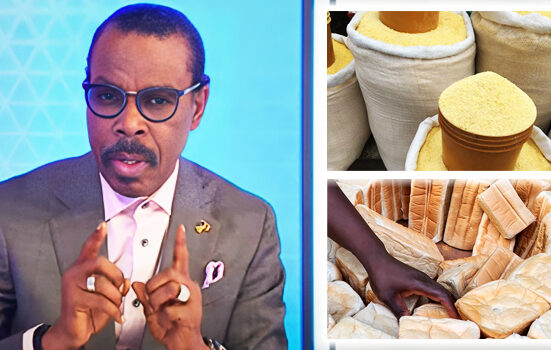By Paul Chimodo
In recent years, the digital landscape has undergone a seismic shift. Social media platforms, once primarily spaces for connection and information sharing, have transformed into bustling marketplaces where content creators, influencers, and everyday users chase the elusive dream of monetization. This surge in monetized content has created a new economy, one driven by likes, shares, views, and ad revenue. But beneath the shiny veneer of financial opportunity lies a complex web of consequences ranging from the proliferation of fake news to erosion of moral standards and a decline in critical thinking among users.
Across Nigeria and many other countries, professionals in key sectors; teachers, journalists, healthcare workers, and even civil servants, have turned to social media not just as a platform for advocacy or personal expression, but as a viable source of income. For some, it’s a lifeline born out of economic hardship; for others, it’s a strategic move to stay relevant in a rapidly changing digital economy. The desperation to make ends meet, compounded by Nigeria’s challenging economic climate, has driven many to prioritize quick monetization over accuracy, morality, or the societal good.
Take the case of Chidi Uzonna, a young teacher, who like many others, finds himself caught in this digital hustle. “I started making videos teaching mathematics and science, but soon realized that controversial topics get more views. If I want to support my family, I have to do what gets the attention,” he confesses. Chidi’s story is increasingly common—educators, health professionals, and even government officials now produce content designed primarily to attract eyeballs and ad clicks, often at the expense of truth and morality.
The pressure to monetize is especially intense because Nigeria’s economy remains fragile. Unemployment rates are high, and many middle and lower-income households struggle daily to survive. In such an environment, social media offers a relatively accessible avenue for income generation. Influencers and content creators can earn from sponsored posts, brand collaborations, and platform monetization programs like YouTube’s Partner Program or Facebook’s Ad Breaks. For some, it’s a way out of poverty; for others, a means to sustain a livelihood amid economic downturns.
However, this rush for quick cash has had unintended consequences. Fake news, misinformation, and sensationalist content flourish because they tend to generate more engagement. The viral spread of false information—ranging from fabricated political stories to health myths—has become a persistent problem. “The problem with monetization is that it rewards sensationalism,” says Dr. Jones Abani, a media ethics expert. “People are more likely to share content that provokes strong emotions, even if it’s false. The financial incentive distorts the way information is shared and consumed.”
This phenomenon isn’t just theoretical. During the Covid 19 pandemic, false narratives spread rapidly on social media, often with devastating effects. Unproven cures for diseases became commonplace, fueling distrust and confusion among the populace. The line between credible journalism and clickbait has blurred, leading many users to question what’s real and what’s not.
The morality of content creation has also taken a hit. In a bid to outperform rivals and attract more viewers, some creators resort to provocative, divisive, or morally questionable content. “I’ve seen videos that are outright offensive, yet they get thousands of views,” remarks Professor Rufus Ajele, a communication scholar. “People are willing to cross moral boundaries if the reward is higher engagement and income.”
Critical thinking, which should be the foundation of an informed society, is suffering as a result. With the flood of sensationalist and often false information, many social media users are becoming passive consumers rather than discerning skeptics. Instead of evaluating sources or questioning narratives, they tend to accept what’s trending at face value. This has implications for societal cohesion, political stability, and even personal decision-making.
Amid these troubling trends, mental health professionals observe the profound psychological impact of the social media monetization craze. Dr. Evelyn Okafor, a clinical psychologist, explains that the constant pursuit of validation through likes and shares can have detrimental effects on individuals’ mental well-being. “Many people are developing anxiety and depression because they tie their self-worth to online metrics,” she notes. “The more they chase after likes, the more they become trapped in a cycle of validation-seeking that can erode their self-esteem and sense of identity.”
Dr. Okafor emphasizes that this obsession often leads to a distorted self-image and heightened stress, especially for young people who are most vulnerable to social media’s influence. “The danger lies in the fact that social media creates a false sense of reality where popularity equates to personal value,” she says. “This can lead to feelings of inadequacy and hopelessness when expectations are not met, fueling a mental health crisis among youth.”

Yet, amidst these challenges, some professionals have found a silver lining. For teachers, doctors, and entrepreneurs, monetized social media content has become a means of survival. John Idoko, a physician, shares, “During the pandemic, I started making health awareness videos. It not only helped save lives but also earned me some money. Without this, I don’t know how I would have managed financially.” For many such individuals, social media monetization is a lifeline, allowing them to continue their professional work while earning an income.
However, the benefits are often accompanied by significant risks. The pressure to produce content that is sensational or controversial can sometimes compromise accuracy and integrity. “You have to be careful,” warns Jones Abani. “The temptation to sensationalize or spread unverified information for quick gains can damage reputations and endanger lives.” The pursuit of monetary rewards can inadvertently encourage the spread of misinformation, which can have serious societal repercussions.
Furthermore, the influence of monetization has altered the landscape of information sharing and education. Traditional platforms for credible news and scholarly discourse are being overshadowed by viral videos and trending topics that prioritize engagement over accuracy. The result is a generation increasingly exposed to superficial content that lacks depth or critical analysis. Educational content, once the domain of formal institutions, now often competes with entertainment-driven videos that prioritize shock value.
This phenomenon has led to concerns about the erosion of a healthy, informed public discourse. Comments from professionals highlight the gravity of this shift. Professor Moses Ikejiaku, a historian, laments, “We are losing our collective ability to think critically because social media rewards emotional reactions over rational analysis. It’s a dangerous trend that threatens our democracy.”
Despite these concerns, some experts argue that social media monetization can be harnessed positively if regulated properly. They advocate for media literacy education and stricter content moderation to ensure that monetized content promotes truth and morality rather than sensationalism and falsehoods.
The psychological toll is also a vital aspect of this conversation. The reliance on social media for income and validation has created a generation vulnerable to mental health issues. Young users, in particular, often struggle with feelings of inadequacy, loneliness, and anxiety. The constant exposure to idealized images and success stories can distort perceptions of reality, leading to a cycle of dissatisfaction and despair.

As Dr. Evelyn Okafor puts it, “We need to foster resilience and teach critical thinking from an early age. Social media is here to stay, but if we don’t develop healthy ways to interact with it, we risk losing our mental and societal stability.” Her words underscore the importance of balanced engagement and the need for psychological support to navigate this new digital economy.
In the end, the story of social media monetization in Nigeria encapsulates a broader global challenge: balancing economic necessity with societal responsibility. For many, social media is a vital tool for survival, especially amid economic hardship. It has helped some survive, provided income, and fostered entrepreneurial spirit. Yet, it also risks undermining the very fabric of an informed society—spreading misinformation, eroding morals, and diluting the quality of public discourse.
For now, Nigeria stands at a crossroads, caught between the promise of digital prosperity and the peril of misinformation. The choices made today will shape the social media landscape for generations to come. And in this unfolding story, the human element remains central; individuals striving to make a living, communities seeking truth, and a nation yearning for a balanced, responsible digital future.









Leave feedback about this